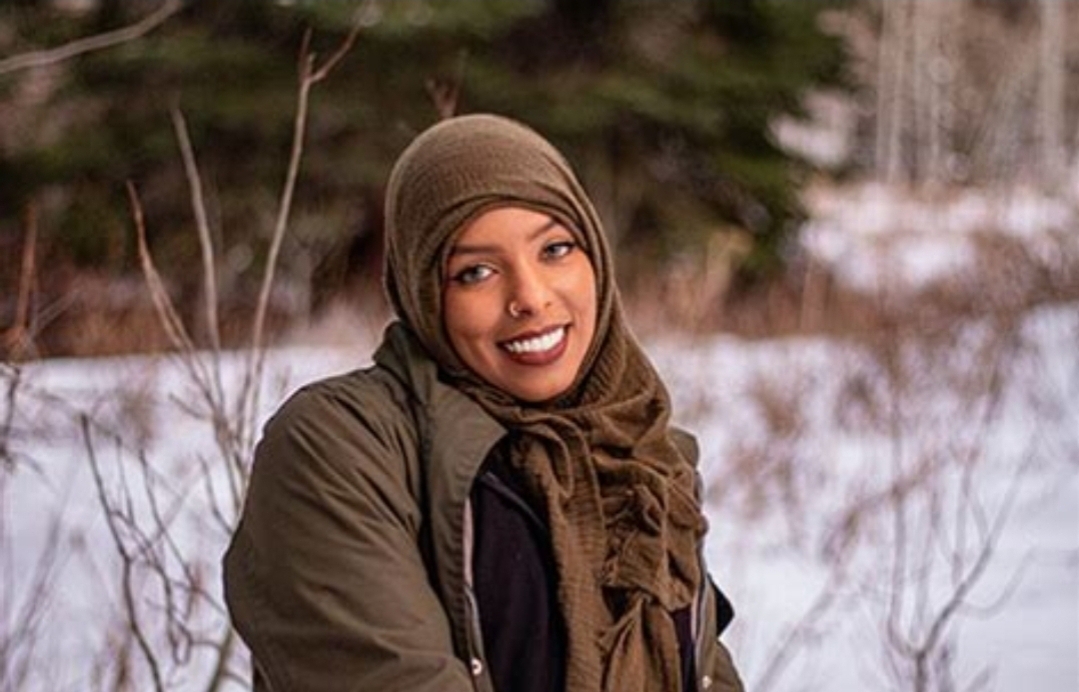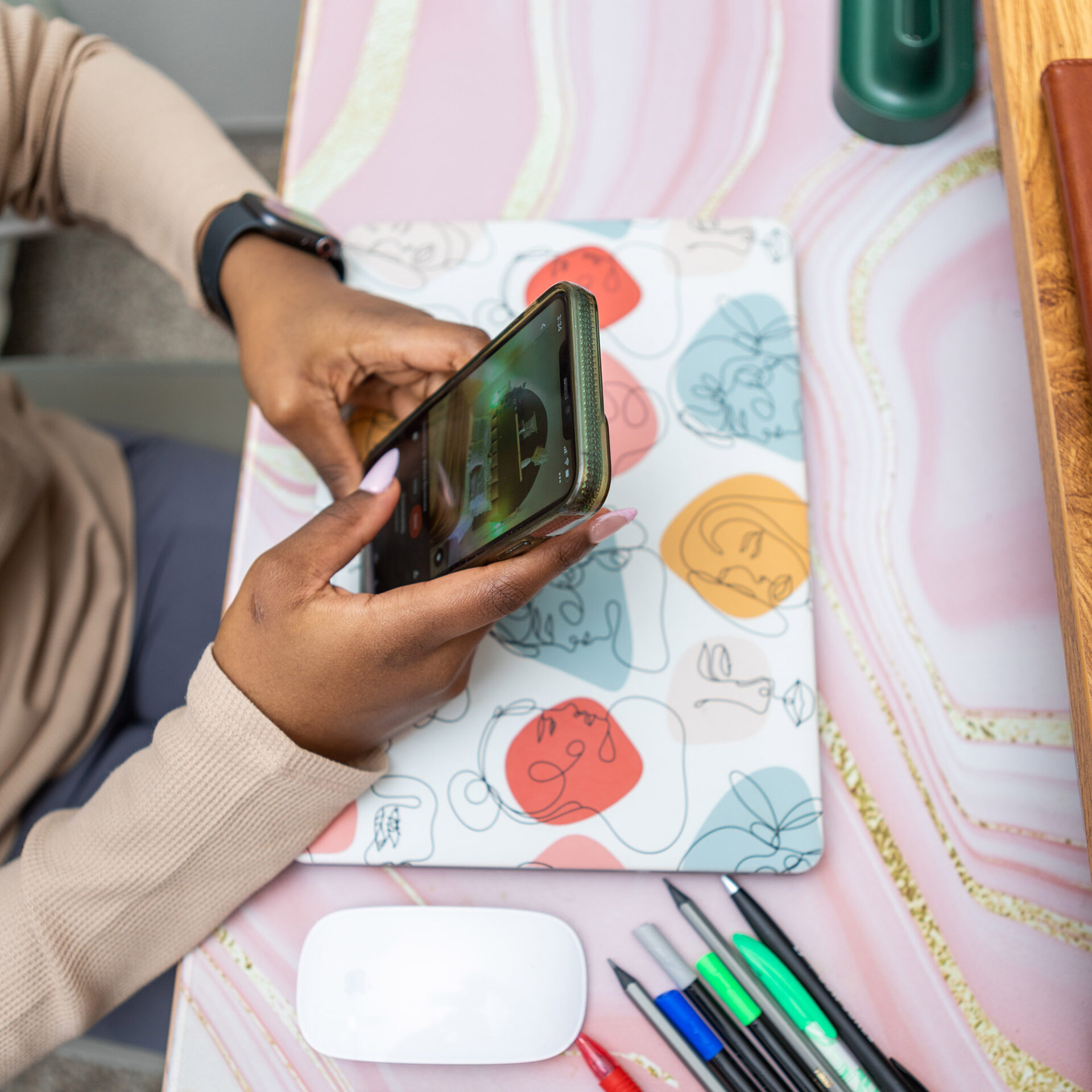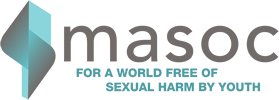MASOC BIPOC Fellowship
The next application cycle will be spring 2025.Meet the 2024-25 MASOC BIPOC Fellows
Libna Noor
My educational journey has provided me with deep insights into human behavior, the barriers and gaps within criminal justice systems, and the global context in which these dynamics unfold. I have degrees in psychology, criminology, and international studies, and I’m currently pursuing my masters in legal studies.
I am eager to work through what addressing problematic sexual behavior (PSB) looks like in various spaces and am passionate about replacing punitive measures with education and tools that foster success. Witnessing the disparities in how sexual violence cases involving youth of color are handled—often resulting in punitive measures with long-term consequences—has been devastating. This has motivated me to contribute to meaningful change and support efforts to improve these systems so that youth from marginalized communities have a chance at life and opportunities and most importantly change.
My commitment to research is driven by a dedication to including diverse perspectives and connecting with many populations to ensure all voices are heard. I strive to identify and address gaps in areas we might assume are covered. I am privileged to currently be part of a research team focused on violence prevention, and my work in higher education and case management has helped identify areas for improvement in handling sexual misconduct cases involving international students.
I am looking forward to expanding my knowledge in this field and sharing what I learn with my local communities to hopefully bring about and encourage change and give youth hope.

Libna Noor
University of Utah
2024-25 BIPOC Fellow
Khumarii Rankins-Williams
My educational journey has provided meaningful insights and a deep gratitude for learning, particularly about our youth in urban communities and my own growth. Coming from a community with limited resources, facing numerous barriers and uncertain situations, I pursued an undergraduate degree in sociology with a minor in criminal justice from the University of Massachusetts, Boston. Building on that foundation, I obtained a master’s in education in mental health counseling from Cambridge College.
My lived experiences have been particularly focused on violence prevention. Between 2013 and 2017, I was part of a peer leadership group called Start Strong, which educates youth about healthy relationships and teen dating violence. With this substantial knowledge, I am confident that the MASOC community, aligned with its mission statement, will be the stepping stone I need to further my career and knowledge.
I am eager to address and understand various sexual behaviors in different contexts, and to proactively fill educational gaps with effective tools and resources that foster success.
I look forward to exploring and absorbing the knowledge presented in this field, sharing it with the communities around me, and hopefully making a significant difference in someone’s life.

Khumarii Rankins-Williams, M.Ed.
Boston, MA
2024-25 BIPOC Fellow
About the MASOC BIPOC Fellowship
Why a BIPOC Fellowship?
MASOC believes that every child and adolescent deserves to live in a world that allows and encourages them to lead safe, healthy, and meaningful lives. However, we know from the research that sexual violence is less likely to be investigated if the victim is a young person of color, and that Black, Latinx, and indigenous children are more likely to face arrest, and prosecution in juvenile and adult courts.
As professionals working with children and adolescents engaging in problematic sexual behaviors, we also recognize the critical importance of building a field of highly trained, experienced professionals whose own identities reflect the diverse communities that make up Massachusetts. Too often, white professionals have consciously and unconsciously created racially stratified professional networks, advancement opportunities, and mentorship, which leads to professional escalators for white professionals while closing off opportunities for professionals of color.
MASOC seeks to create an advancement opportunity that especially welcomes new BIPOC professionals to the field and creates learning and growth in this specialized area of practice that goes beyond practicum placement or classroom learning to provide mentorship and open professional networks.
Who should apply?
MASOC is primarily an association of clinicians, with a focus on providing educational opportunities and policy conversations affecting children and youth engaging in PSB. We welcome students from a range of clinical fields—psychology, mental health counseling, social work—with an interest in advancing the work with this important population and their families.
However, MASOC also encourages applications from allied fields whose work intersects with and informs our own, so long as the applicant has a specific interest in this practice area: pediatrics and family medicine, law, public health, sociology, criminology, elementary and secondary education, etc.
MASOC is a Massachusetts-based organization, so particularly welcomes applicants who do or are planning to live or practice in Massachusetts. However, if your research or practice area particularly involves Massachusetts, you are also encouraged to apply.

Description of Role
The MASOC Fellow works with the MASOC Board of Directors for 9-months (September – June) on projects affecting children and adolescents with problematic sexual behaviors (PSB).
The Fellow will have the opportunity to work on a range of projects of their choice. Topics can include, but are not limited to:
- policy and legislative advocacy,
- social media and communications,
- fundraising and grant writing,
- curriculum design and implementation.
In the application, the Fellow will provide a statement about their interest in this fellowship, the potential topic area(s) they want to explore and a description of how the fellowship relates to their career goals.
Mentorship
Once the Fellow is chosen, they will be matched with a mentor from the MASOC Board of Directors based upon their interest. The mentor will provide individualized guidance, support, and career mentorship over the course of the fellowship.
Time Commitment
The time commitment is approximately 2–4 hours a week (in part based on the existing academic and training demands of the Fellow). The Fellow will attend monthly board meetings, have an opportunity lead the board in a discussion based upon their research, lead a presentation about their project at our annual Spring meeting, and participate in the operations of our organization through monthly board meetings.
Stipend
A stipend of $1,300 is provided to the Fellow as well as free registration at any MASOC conference (virtual joint conference, campus conference, and annual in-person conference), webinar or lunch and learn, all of which carry CE credits.
To Apply
Applications for 2025-26 will open in February 2025 with a deadline in June. If you have any questions or would like to discuss a possible project, please contact Meg Bossong at info@masoc.net.

Past Fellow Experiences
“Being a MASOC BIPOC fellow was such a rewarding experience. Being able to share space with an amazing group of people who are not only open to having difficult conversations but are also open to learning from one another and sharing their own experiences has contributed to my own professional and personal growth. I enjoyed learning more about how board functions and gaining a better understanding about the importance of policy work. I also loved having the opportunity to be involved in several different projects I was interested in. My experience was so positive that I decided to become a board member following the end of my fellowship.”
“The fellowship experience I had with MASOC was invaluable, both for my personal development and also for my professional training as a pediatrician. I have been able to have rewarding discussions with advocates, lawmakers, clinicians, and most humbling, the families impacted by PSB. All the board members were welcoming and provided some mentorship in some way. I would highly recommend this experience to anyone interested. I hope I use the knowledge that I acquired this year and spread awareness of PSB throughout the medical community to aid in understanding and assist in healing of families.”
“MASOC allowed me to further develop my presenting and public speaking skills and increased my professional development.”
